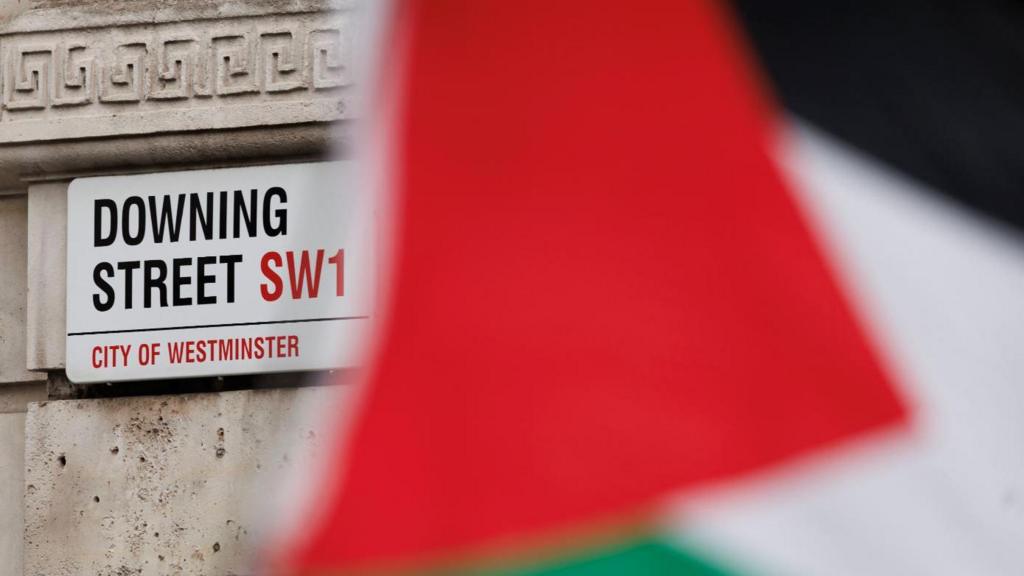Sir Keir Starmer is well-acquainted with Emily Damari’s experience.
During her 15-month captivity in Gaza, the Prime Minister frequently referenced her ordeal when discussing the conflict, including mentioning his conversations with her British mother, Mandy, who was uncertain of Emily’s survival.
Therefore, it will undoubtedly be a disquieting experience for the Prime Minister to face direct criticism from Emily today.
In response to Sir Keir’s announcement of his willingness to recognize a Palestinian state in September, Ms. Damari accused him of “moral failure.”
She asserted that his actions risked “rewarding terror” and “prolonging the conflict.”
Her statement echoed concerns raised by representatives of 10 hostages, either British citizens or with close ties to Britain, who are currently held or have been held in Gaza.
While they maintain neutrality on the “wider politics” of the war, they expressed concern that the UK’s revised stance could diminish Hamas’s incentives to agree to a ceasefire and release the remaining hostages, potentially making the recognition of a Palestinian state less probable.
The hostage families’ apprehension stems from a prominent interpretation of the Prime Minister’s remarks in Downing Street following Tuesday’s emergency cabinet meeting.
Specifically, the understanding that UK recognition of Palestine hinges on Israel meeting various conditions in the coming weeks: agreeing to a ceasefire, affirming its commitment against annexing the West Bank, taking “substantive steps” to alleviate the humanitarian crisis in Gaza, and committing to a long-term peace process.
However, government sources have also highlighted another element of the Prime Minister’s statement from Tuesday.
“Our message to the terrorists of Hamas is unchanged and unequivocal,” he stated. “They must immediately release all the hostages, sign up to a ceasefire, disarm and accept that they will play no part in the government of Gaza.
“We will make an assessment in September on how far the parties have met these steps.”
“Parties” plural—referring to both Israel and Hamas.
Downing Street sources argue that this demonstrates that the UK’s ultimate decision on recognition will depend not only on Israel’s actions but also on those of Hamas, thereby ensuring that their approach does not discourage Hamas from releasing the hostages.
Nevertheless, this position has not been consistently communicated.
For instance, Transport Secretary Heidi Alexander, speaking to the BBC today, stated that “the ball is in the Israeli government’s court.”
When asked whether recognition would still occur if Hamas remains in control of Gaza in September, she solely addressed the need for Israel to meet the government’s conditions.
The underlying reality is that all Labour sources consulted anticipate the government will proceed with recognizing Palestine in September.
Despite the ambiguity surrounding the specific conditions and the assessment process, this represents the core significance of Sir Keir’s statement on Tuesday.
This shift marks a substantial alteration in the UK’s diplomatic posture, both across administrations of different affiliations and in comparison to the government’s stance just days prior.
Sir Keir has long advocated for recognizing a Palestinian state, but only when it would maximally contribute to a two-state solution – generally understood to mean after the cessation of the current conflict.
The delicate political landscape surrounding this policy shift is a key reason for the government’s current complex position.
Political considerations also undeniably influenced the government’s decision to alter course.
Sir Keir’s rhetoric, particularly concerning the humanitarian situation in Gaza, has been demonstrably hardening.
However, the sentiment within the parliamentary Labour party was evolving more rapidly.
By the beginning of this week, over half of Labour’s MPs not holding government positions had signed a letter urging the government to recognize Palestine.
Cabinet ministers were signaling their agreement through various channels.
Some within the government were concerned that upon MPs’ return from their summer recess in September, an opposition party would find a way to force a vote on the issue – and Starmer would be compelled to concede if he had not done so already.
Political forces were inevitably going to take effect. However, there is a risk that the government could find itself in a precarious middle ground.
Some, including vocal proponents of recognizing Palestine within Labour, argue that if Palestinian statehood is an inalienable right, it should not be conditional on actions by the Israeli government.
This position is also held by the Liberal Democrats, the Green Party, and independents like Jeremy Corbyn.
Conversely, others argue that this is merely symbolic politics and that statehood should not be considered until Hamas releases the hostages – even though the envisioned Palestinian state would be governed by the Palestinian Authority, not Hamas.
This view is shared by a minority within Labour, but more prominently by the Conservatives and Reform UK.
Ultimately, the shift in the government’s position was driven by the majority within the Labour Party – those who have not always been outspoken on the issue and have generally supported Sir Keir’s judgment – who desired a change. They are content today.
This fragile political consensus rests on the widespread expectation that this is simply a step toward the inevitable recognition of Palestine in a matter of weeks.
Sign up for our Politics Essential newsletter to stay informed on the inner workings of Westminster and beyond.
Trump’s volatile trade policy has thrown the world economy into chaos, and put some US prices up.
Prime Minister Keir Starmer says the plan will go ahead unless the Israeli government takes “substantive steps to end the appalling situation in Gaza”.
The PM announces there will be a shift in policy in September, unless Israel takes steps including agreeing a ceasefire in Gaza.
Unless new demands are met, the prime minister says the UK will recognise a Palestinian state in September.
The BBC’s diplomatic correspondent Paul Adams explains how the people of Gaza have reached a point of starvation.

